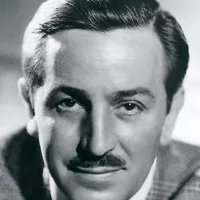Dumbo is a 1941 American animated fantasy drama film produced by Walt Disney Productions. Released by RKO Radio Pictures, the film's story is based on the storyline by Helen Aberson and Harold Pearl, which was originally created for a novelty toy. Dumbo tells the story of a baby elephant with oversized ears who is ridiculed and separated from his mother. He eventually learns to fly using his ears and becomes a circus star with the help of his friend Timothy Mouse.
1939: Disney Discovers Dumbo
In late 1939, Kay Kamen brought the children's book Dumbo to Walt Disney's attention, who purchased the rights to it after recognizing its potential.
February 27, 1940: Disney Assesses Dumbo
On February 27, 1940, Walt Disney noted that Dumbo was "an obvious straight cartoon" during a story meeting for Bambi.
March 1940: Story Team Translates Outline into Sketches
In March 1940, Otto Englander led a story team to translate the outline into story sketches.
March 21, 1940: Script Outline Completed
On March 21, 1940, Dick Huemer and Joe Grant completed a 102-page script outline for Dumbo.
May 29, 1941: Production Interrupted by Strike
On May 29, 1941, production on Dumbo was interrupted when Disney's animation staff went on strike.
September 11, 1941: Dumbo Delivered to RKO Radio Pictures
On September 11, 1941, Dumbo was completed and delivered to Disney's distributor, RKO Radio Pictures.
October 23, 1941: Dumbo Released to Critical Acclaim
On October 23, 1941, Dumbo was released and met with critical acclaim for its story, humor, visuals, and music.
December 8, 1941: Postponed "Mammal of the Year" Story
Time magazine had originally scheduled to run a story with an appearance cover for "Mammal of the Year" on December 8, 1941, but the attack on Pearl Harbor postponed it.
1941: Release of Dumbo
In 1941, Walt Disney Productions produced the animated fantasy drama film Dumbo, which was released by RKO Radio Pictures, based on the storyline by Helen Aberson and Harold Pearl.
1941: Clowns' Requests Interpreted as Reference to Strike
In 1941, some interpreted the clowns' requests to get a raise as a reference to the Disney animators' strike, although animator Art Babbitt denied this connection.
1941: Production Begins on Low-Budget Feature
In early 1941, production began on Dumbo with a modest budget, with supervising director Ben Sharpsteen instructed to keep the film simple and inexpensive.
1949: Dumbo Re-Released
In 1949, Dumbo was re-released in theaters.
September 14, 1955: Television Premiere on Disneyland
On September 14, 1955, Dumbo had its television premiere, albeit severely edited, as an installment of the Disneyland television show.
1959: Dumbo Re-Released
In 1959, Dumbo was re-released in theaters.
1968: Stereotypes Argued in "The Disney Version"
In his 1968 book, "The Disney Version", Richard Schickel argued that the crows in Dumbo were African American stereotypes, with the lead crow named "Jim Crow".
1972: Dumbo Re-Released
In 1972, Dumbo was re-released in theaters.
1976: Dumbo Re-Released
In 1976, Dumbo was re-released in theaters.
September 17, 1978: Unedited Showing on Disneyland Anniversary
On September 17, 1978, Dumbo was shown unaltered as part of a two-night salute to the Disneyland program's 25th anniversary.
1980: Crows as "Father Figures"
In 1980, film critic Michael Wilmington referred to the crows as "father figures" and parodies of proletarian blacks, but noted they were the "snappiest, liveliest, most together characters in the film."
June 26, 1981: Home Video Release on VHS, Laserdisc, and Betamax
On June 26, 1981, Dumbo was released on VHS, Laserdisc and Betamax as a rental only.
October 1982: Sales Extended to CED
In October 1982, Dumbo's sales were also extended to CED.
November 6, 1985: Re-Release on VHS and Betamax
On November 6, 1985, Dumbo was re-released on VHS and Betamax as part of the Walt Disney Classics series.
July 12, 1991: Re-Release on VHS and Laserdisc
On July 12, 1991, Dumbo was re-released on VHS and Laserdisc.
October 28, 1994: Re-Issue on VHS and Laserdisc
On October 28, 1994, Dumbo was re-issued on VHS and Laserdisc as part of the Walt Disney Masterpiece Collection.
1999: Dumbo appears in Disney's Villains' Revenge
In 1999, Dumbo was featured as one of four characters in the PC game Disney's Villains' Revenge. In the game, Dumbo is forced to perform humiliating stunts and is defeated by a custard pie.
October 23, 2001: 60th Anniversary Edition Released
On October 23, 2001, a 60th Anniversary Edition of Dumbo was released in VHS and DVD formats.
2001: Sneak peek of Dumbo II
In 2001, the "60th Anniversary Edition" DVD of Dumbo featured a sneak peek of the proposed sequel Dumbo II, including new character designs and storyboards.
2002: Dumbo appears in Kingdom Hearts
In 2002, Dumbo appeared in Kingdom Hearts on PlayStation 2 as a summon who helps the player in battle.
2002: Influence on Lilo & Stitch
In 2002, Lilo & Stitch drew influences from Dumbo, also making use of watercolor backgrounds.
2004: Dumbo reprises his role in Kingdom Hearts: Chain of Memories
In 2004, Dumbo reprised his role as a summon in the Game Boy Advance game Kingdom Hearts: Chain of Memories.
2006: Dumbo II Cancelled
In 2006, John Lasseter cancelled Dumbo II, soon after being named Chief Creative Officer of Walt Disney Animation Studios.
2006: "Big Top Edition" DVD Release
In 2006, a "Big Top Edition" of Dumbo was released on DVD.
June 2009: Flying Dumbo in Fireworks Show
In June 2009, Disneyland introduced a flying Dumbo to their nighttime fireworks show, flying around Sleeping Beauty Castle.
September 20, 2011: 70th Anniversary Edition Release
On September 20, 2011, a 70th Anniversary Edition of Dumbo was released in the United States in Blu-ray/DVD combo and DVD formats, including bonus features.
2011: Named One of the Best Animated Films
In 2011, Richard Corliss of Time named Dumbo as one of the 25 all-time best animated films.
July 8, 2014: Live-action adaptation of Dumbo announced
On July 8, 2014, Walt Disney Pictures announced the development of a live-action adaptation of Dumbo with Ehren Kruger as screenwriter and co-producer.
March 10, 2015: Tim Burton Announced as Director
On March 10, 2015, Tim Burton was announced as the director for the live-action adaptation of Dumbo.
April 26, 2016: 75th Anniversary Re-Release
On April 26, 2016, Dumbo was re-released on Blu-ray and DVD to celebrate its 75th anniversary.
January 11, 2017: Will Smith in talks to star in Dumbo remake
On January 11, 2017, it was reported that Will Smith was in talks to star in the remake as the father of some children who befriend Dumbo.
March 2017: Eva Green in talks to play trapeze artist
In March 2017, Eva Green was in talks to play a trapeze artist in the live-action Dumbo movie. Danny DeVito was cast as ringleader.
April 4, 2017: Michael Keaton in talks to star as the villain
On April 4, 2017, Michael Keaton entered talks to star as the villain in the live-action Dumbo movie.
June 26, 2017: Michael Keaton confirms his involvement with Dumbo movie
On June 26, 2017, Michael Keaton confirmed his involvement with the live-action Dumbo movie.
July 15, 2017: Casting for Dumbo announced, release date set
On July 15, 2017, Disney announced the casting for all of the principal roles and that the film would be released on March 29, 2019.
2017: Dumbo Selected for Preservation
In 2017, Dumbo was selected for preservation in the United States National Film Registry by the Library of Congress due to its cultural, historical, and aesthetic significance.
2017: Whoopi Goldberg Expresses Desire for Merchandising
In 2017, Whoopi Goldberg expressed the desire for the crow characters to be more merchandised by Disney.
2018: Stereotypical Depiction of Black People
In 2018, The Encyclopedia of Racism in American Films noted that "All of the circus laborers are African American, the only time that blacks are seen in any great number in the entire movie."
March 29, 2019: Release of live-action Dumbo movie
The live-action Dumbo film was released on March 29, 2019.
2019: Defense of Crows by Floyd Norman
In 2019, Floyd Norman defended the crows in an article entitled Black Crows and Other PC Nonsense.
2019: Crows Not Included in Remake
In 2019, the crow characters were not included in the live-action/CGI remake of Dumbo. It was reported that an edited version without the crows would be featured on Disney+.
2021: Limited to Viewers 7 and Older
In 2021, Dumbo was one of several films that Disney limited to viewers 7 years and older on Disney+, citing the similarity of the crows' depictions to "racist minstrel shows".
2023: Financial Success Compared to 2023
In 2023, the production cost of Dumbo would be equivalent to $19,680,000 and it grossed roughly more than $33,140,000.
Mentioned in this timeline
PlayStation is a video game brand by Sony Interactive Entertainment...

Walter Elias Disney was a highly influential American animator film...

Will Smith is a highly successful American actor rapper and...

Danny DeVito is an acclaimed American actor and filmmaker widely...

Whoopi Goldberg born Caryn Elaine Johnson is a highly acclaimed...

Disneyland located in Anaheim California is the first theme park...
Trending

35 minutes ago Official Pokémon LEGO Sets Launch Worldwide on Pokémon Day 2026!

35 minutes ago Scream 7 Premiere Sees Protests After Melissa Barrera's Firing; Cast Reunites.

35 minutes ago Stock market plunges after PPI inflation data; Dow, S&P 500, Nasdaq decline.
36 minutes ago US advises embassy staff to leave Israel amid Iran strike threats, urging speed.

36 minutes ago IndyCar Season Opens in St. Petersburg: O'Ward and Palou in Focus.

36 minutes ago Norah O'Donnell Back on CBS Mornings, Highlights Women in 'We the Women'
Popular

Jesse Jackson is an American civil rights activist politician and...

Barack Obama the th U S President - was the...

Susan Rice is an American diplomat and public official prominent...

XXXTentacion born Jahseh Dwayne Ricardo Onfroy was a controversial yet...

Michael Joseph Jackson the King of Pop was a highly...

Kashyap Pramod Patel is an American lawyer who became the...